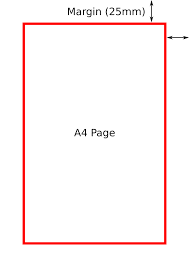margin
英 [ˈmɑː.dʒɪn]
美 [ˈmɑːr.dʒɪn]
- n. 边缘;利润,余裕;页边的空白
- vt. 加边于;加旁注于
- n. (Margin)人名;(俄、意)马尔金
使用频率:

记忆方法
记忆“margin”的方法是联想其字形:“margin”一词由“mar”(边、边际)和“gin”(类似于“ginger”中的“gin”,代表边角的意思)组成。可以想象一个页面的边缘有细微的装饰,这就是“页边的空白”或“边缘”的意思。通过将“mar”和“gin”连接起来,记住“margin”是指书页、纸张或其他印刷材料上的边框或空白部分。
以上内容由AI生成, 仅供参考和借鉴
中文词源
margin 页边,边缘
来自拉丁语marginem,边缘,边界,来自PIE*merg,记号,标记,边界,词源同mark,march.引申词义湖边,河边,页边等。
英语词源
- margin
-
margin: [14] Margin comes from margin-, the stem form of Latin margō ‘margin’. This appears to go back to the same ultimate source as English mark (which originally meant ‘boundary’). The now archaic synonym marge [15] was borrowed from the Latin word’s French descendant.
=> march, mark - margin (n.)
- mid-14c., "edge of a sea or lake;" late 14c., "space between a block of text and the edge of a page," from Latin marginem (nominative margo) "edge, brink, border, margin," from PIE *merg- "edge, border, boundary" (see mark (n.1)). General sense of "boundary space; rim or edge of anything" is from late 14c. Meaning "comfort allowance, cushion" is from 1851; margin of safety first recorded 1888. Stock market sense of "sum deposited with a broker to cover risk of loss" is from 1848. Related: Margins.
- margin (v.)
- c. 1600, "to furnish with marginal notes," from margin (n.). From 1715 as "to furnish with a margin."
权威例句
- 1. The group had a net profit margin of 30% last year.
- 去年,这个集团的纯利润率为30%。
- 2. The Sunday Times remains the brand leader by a huge margin.
- 《星期日泰晤士报》仍以巨大的优势稳居报业龙头的地位。
- 3. They could end up with a 50-point winning margin.
- 他们最终可能会以50分的优势获胜。
- 4. She began rubbing out the pencilled marks in the margin.
- 她开始擦掉空白处的铅笔笔迹。
- 5. The margin in favor was 280-to-153.
- 赞成票以280票比153票的优势领先。
